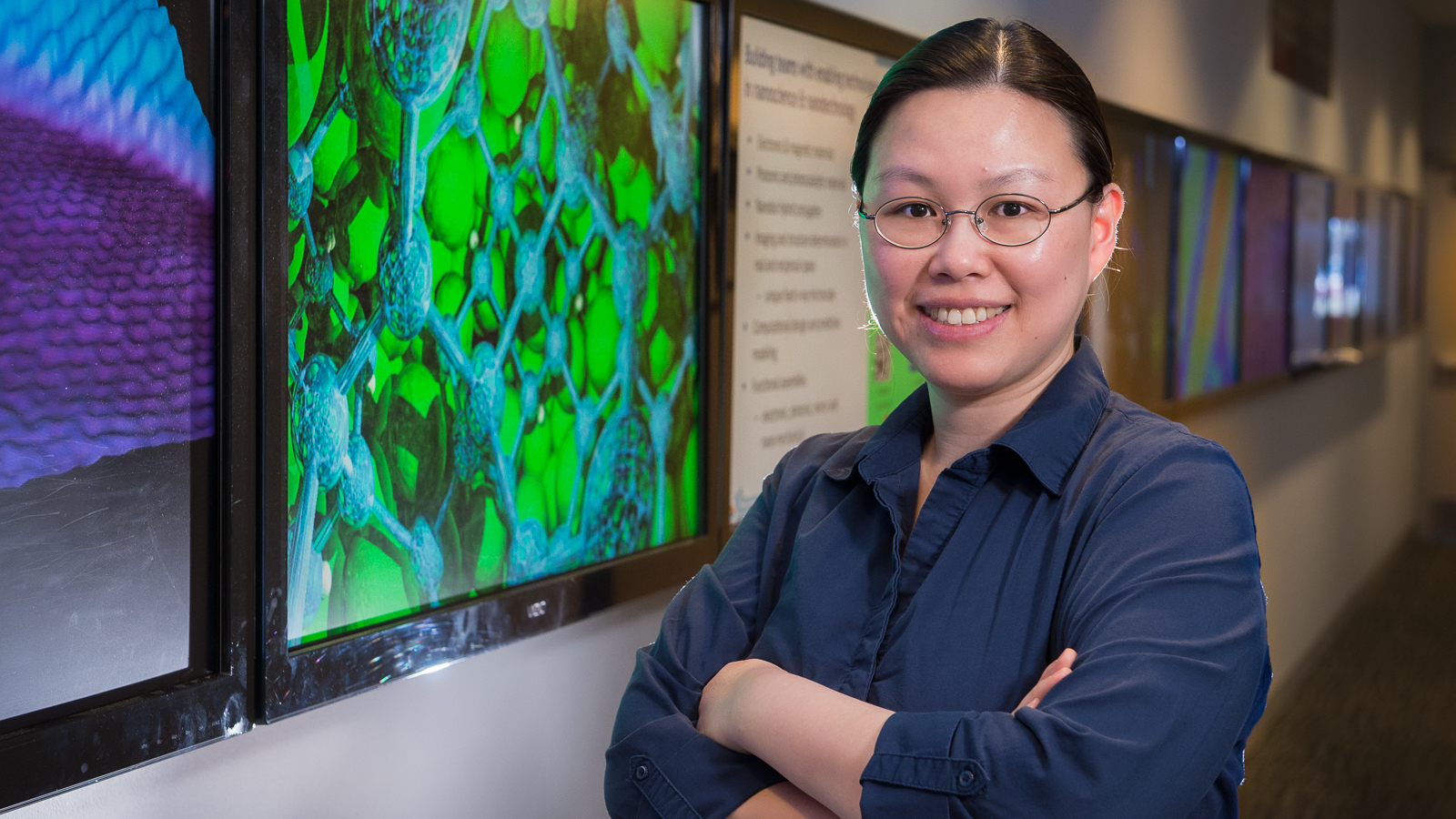Scientist (NST)
Education: Postdoctoral Associate (Massachusetts Institute of Technology); Ph.D. in Physics (MIT); Bachelor of Science in Physics and Applied Math (University of California, Los Angeles)
Maria Chan tackles the grand challenge of understanding the materials in renewable energy devices as a scientist in Argonne National Laboratory’s Nanoscience and Technology (NST) division.
When she was just 11 years old, Maria decided to become a physicist after reading a book about special relativity.
“I have always liked math and science, and even as a child, I always had my head buried in a book,” she said. “The idea that we can use thought experiments and mathematics to make predictions, which can then be tested by experimental measurements, was very enticing to me.”
Initially coming to Argonne as a postdoctoral associate, Maria is now a scientist in the Lab’s NST division, working at the Center for Nanoscale Materials (CNM). There, she uses computer simulations and artificial intelligence technology to study where atoms go in different materials, which will have a major impact on devices such as batteries and solar cells.
“We rely enormously on different materials for our phones, cars, power sources and transmission grids, lighting, and so much more,” she said. “Improvements in our materials can contribute toward tackling climate change and our energy needs.”
Although Maria stays busy between scientific research at the Lab and parenting at home, she greatly enjoys her job, which fulfills her lifelong passion for scientific research.
“I love the challenge of solving new and complex problems with a team of other researchers. It is like solving a big mystery with others,” she said. “People have different ideas and suggestions, and we go back and forth in our arguments and analysis.”
Maria has helped out in student programming at the Lab as an Education Volunteer. She advises students not to neglect their communication skills, which are just as important as math and logic in science fields.
“Every idea in science is debated and challenged, so being able to use your words effectively is important,” she said. “Without being able to communicate our ideas to others, those ideas might as well not exist.”
In addition, Maria encourages young women in particular to never give up on their science, technology, engineering and mathematics (STEM) dreams.
“Ignore your brother who told you, ‘girls don’t become scientists.’ Forget all the people who told you that being too ‘smart’ is bad for girls because boys don’t like that,” she said. “Continue to be unapologetically, relentlessly curious. That is who you are.”
